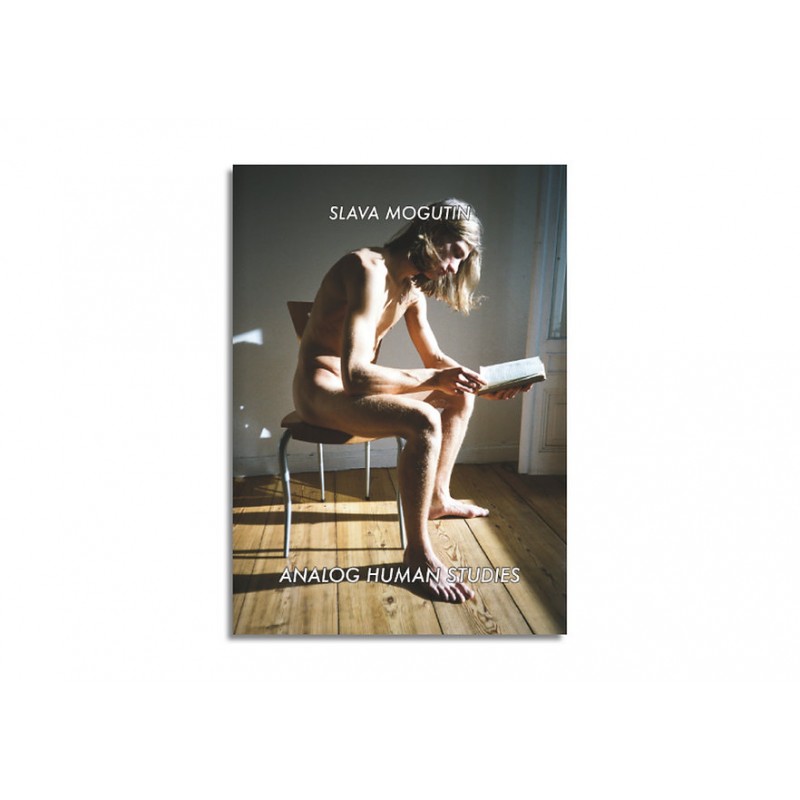- Coup de cœur






Analog Human Studies is an ongoing project that covers two decades of Mogutin's film photography, from the outtakes from his first monograph Lost Boys (2006) to most recent commission and editorial work, portraits and nudes taken in New York, Los Angeles, Berlin, Paris, London, Madrid and beyond.
Among the artists and personalities featured in the book are Maxima Cortina, Cassils, Christeene, Sophia Lamar, Brooke Candy, Kyle England, Boy Radio, Brian Kenny, Matthieu Charneau, Dominic Johnson, Ron Athey, Nick Theobald, Durk Dehner, Florian Hetz, Sean Ford, Andreja Pejić, Luke Abby, Jonah Almost, Isaac Powell, Nile Harris, German Lavrovsky, Jesse Thompson, Fernando Casablancas, and Pierre et Gilles.
Analog Human Studies is an ongoing project that covers two decades of Mogutin's film photography, from the outtakes from his first monograph Lost Boys (2006) to most recent commission and editorial work, portraits and nudes taken in New York, Los Angeles, Berlin, Paris, London, Madrid and beyond.
Among the artists and personalities featured in the book are Maxima Cortina, Cassils, Christeene, Sophia Lamar, Brooke Candy, Kyle England, Boy Radio, Brian Kenny, Matthieu Charneau, Dominic Johnson, Ron Athey, Nick Theobald, Durk Dehner, Florian Hetz, Sean Ford, Andreja Pejić, Luke Abby, Jonah Almost, Isaac Powell, Nile Harris, German Lavrovsky, Jesse Thompson, Fernando Casablancas, and Pierre et Gilles.
Born in Siberia, Slava Mogutin is a Russian-American multimedia artist, author and activist exiled from Russia for his outspoken queer writing and activism. A third-generation writer and self-taught photographer, he became the first Russian to be granted political asylum in the US on the grounds of homophobic persecution. Informed by his bicultural dissident and refugee experience, Mogutin’s work examines the notions of displacement and identity, pride and shame, devotion and disaffection, love and hate.
Mogutin is the author of seven books of writings in Russian, three monographs of photography and two illustrated collections of poetry published in the US, as well as numerous artist editions. He's the winner of Andrei Bely Prize for poetry and the Tom of Finland Foundation Award for artistic achievement. He lives and works between New York, Los Angeles and Berlin.
Slava Mogutin is the bastard child of Mayakovsky and Helmut Newton. He’s the best kind of artist—the kind who creates because he needs to, and who painstakingly develops an aesthetic to express that need.
— Bruce LaBruce
Mogutin’s photographs have engaged both international and domestic audiences. They move us to interrogate our cultural notions of romance, shame, fantasy, and love. The cosmopolitan renegades that inhabit Mogutin’s world of urban youth culture vary from the poetic to the downright obscene.
— Cordelia Chadwick, Juxtapoz
Are these skinny, heavily tattooed bodies male or female or at the intersection of the sexes? As in a Harold Pinter play, we feel we’d understand what’s going on if we’d only arrived a moment earlier; uncomprehending, we feel we’re close to the beautiful mystery these painted, shorn people embody.
— Edmund White
Mogutin’s work, like all the best things of the world, is something you want to keep around all the time—except when you are going through customs.
— Christopher Bollen, V Magazine
Fearlessly confronting the power structure in both the court of law and the court of public opinion, Slava made his voice heard and shone a light on so many who were systemically marginalized and discriminated against. Slava wanted to put a human face on a community long subject to misinformation and erasure.
— Sara Rosen, i-D